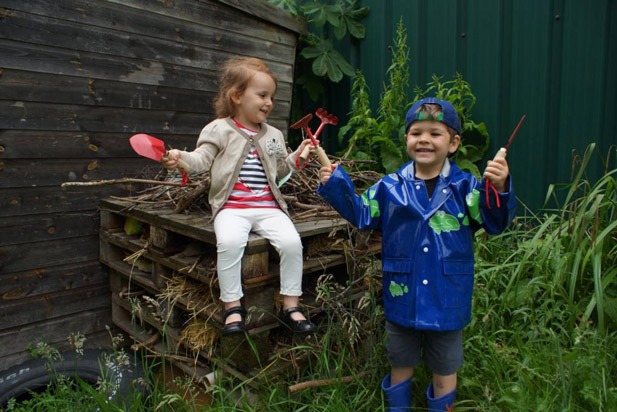A new hotel has opened for business in the grounds of a leading Harrogate leisure club.
But the new establishment – located at The Academy Health Club and Spa – does not cater for human clientele!

Instead the four-storey venue, which is made from reclaimed wooden pallets, is a “bug hotel”, created by children from The Academy Crèche, as part of the club’s biodiversity initiative.
Named “Hotel du Bug” by the staff and toddlers, the hotel is already proving to be a popular haunt – and a hive of activity – for a host of creepy-crawlies.
Academy Managing Director Philippa Shackleton said:
For the past few months we have been working with Harrogate and District Wildlife and Biodiversity Action Group to make the most of our superb grounds.
This has included us hiring the team from Horticap who worked with our maintenance staff planting wild flowers, creating an Olympic flower meadow, herb garden and ‘Mediterranean’ patch with planters and water feature.
To get the children from the crèche involved, we decided to open our very own bug hotel, which is helping to bring an influx of insects into the grounds.
They helped to build hotel from scratch which included putting the straw in between ‘each floor’ and deciding its location, plus regularly monitoring activity and guest numbers!
We do have some lovely grounds and our aim is to get the most out of them, not only for our members, but for local wildlife too.
The Academy’s push for gold is being led by Philippa and Tennis Club Captain, Carolyn Rothwell, who is also a member of the Harrogate and District Wildlife and Biodiversity Action Group.
To achieve gold status, The Academy has to implement at least 12 wildlife-friendly features from a list of 24.
These include installing bird boxes and recycling water butts; planting drought resistant plants and nectar rich plants, not using chemical weed killers; composting and creating a long grass area.






